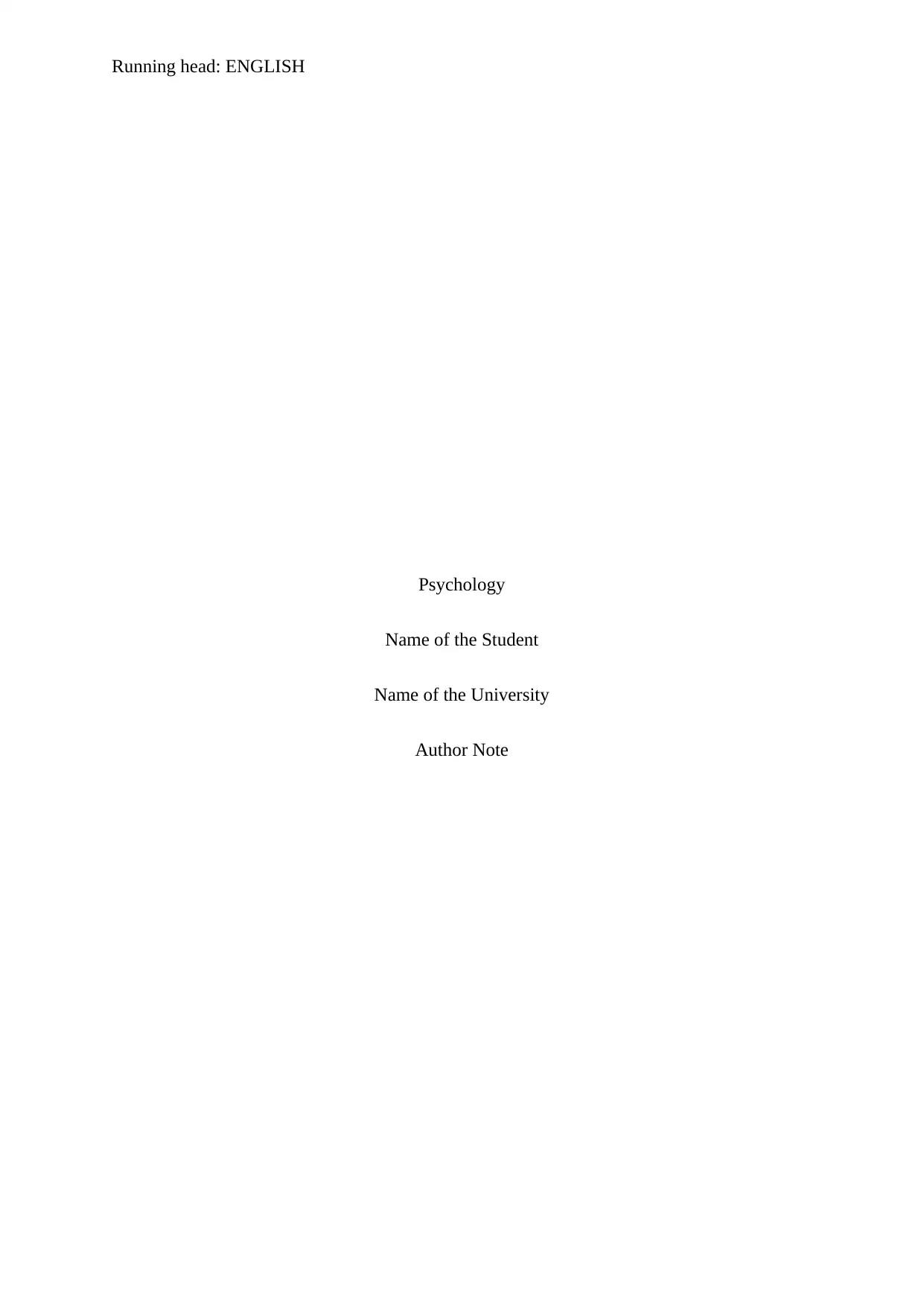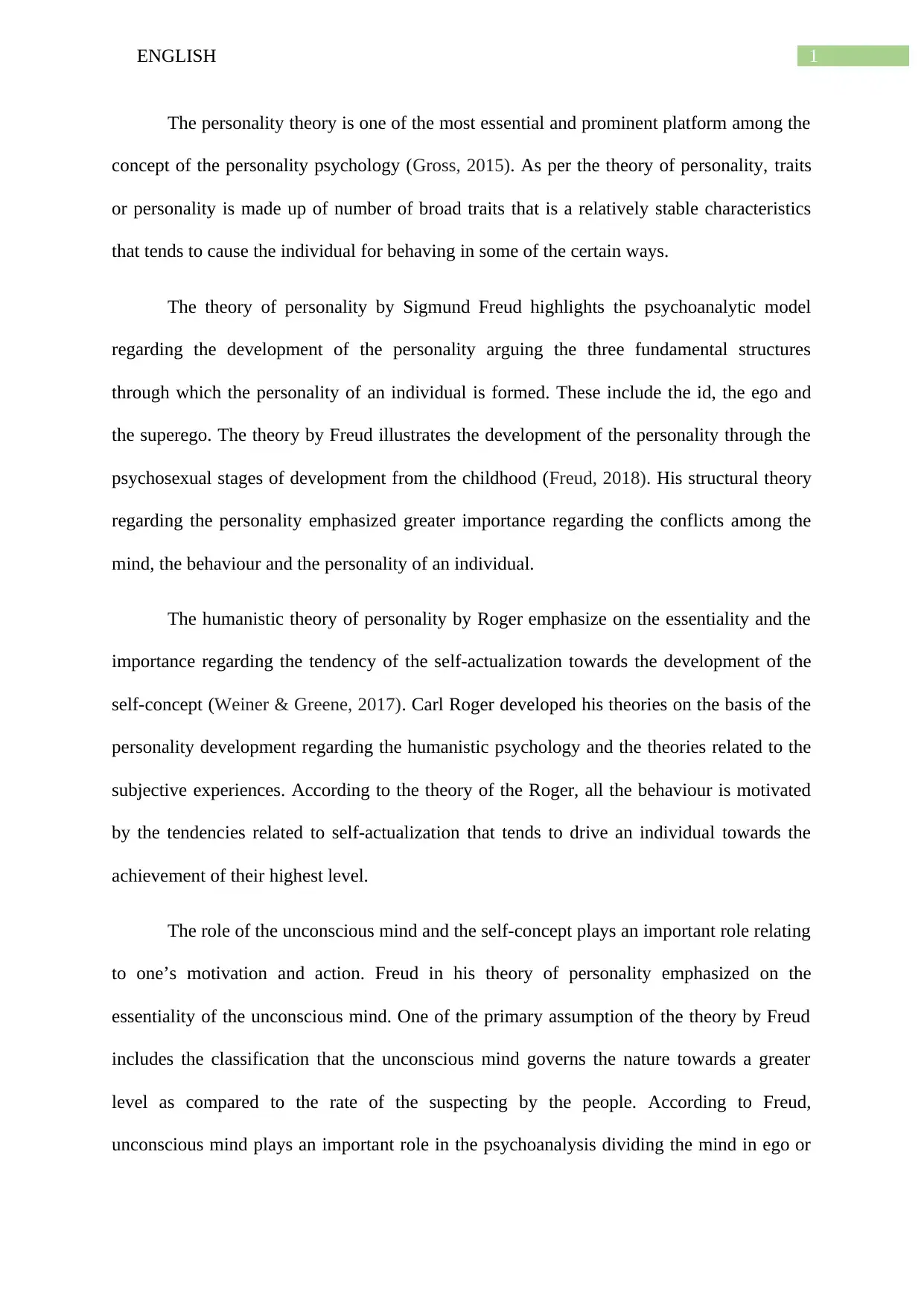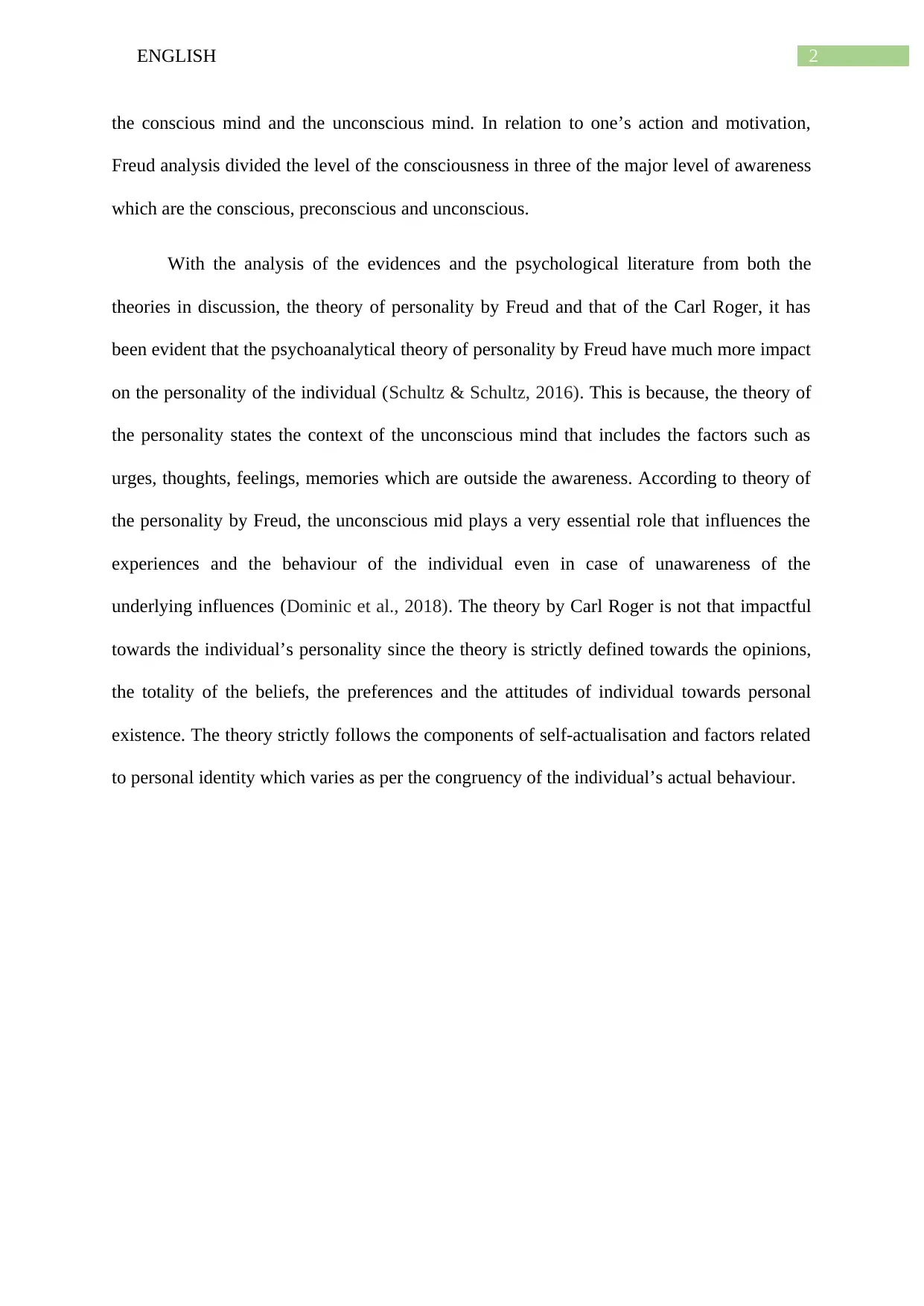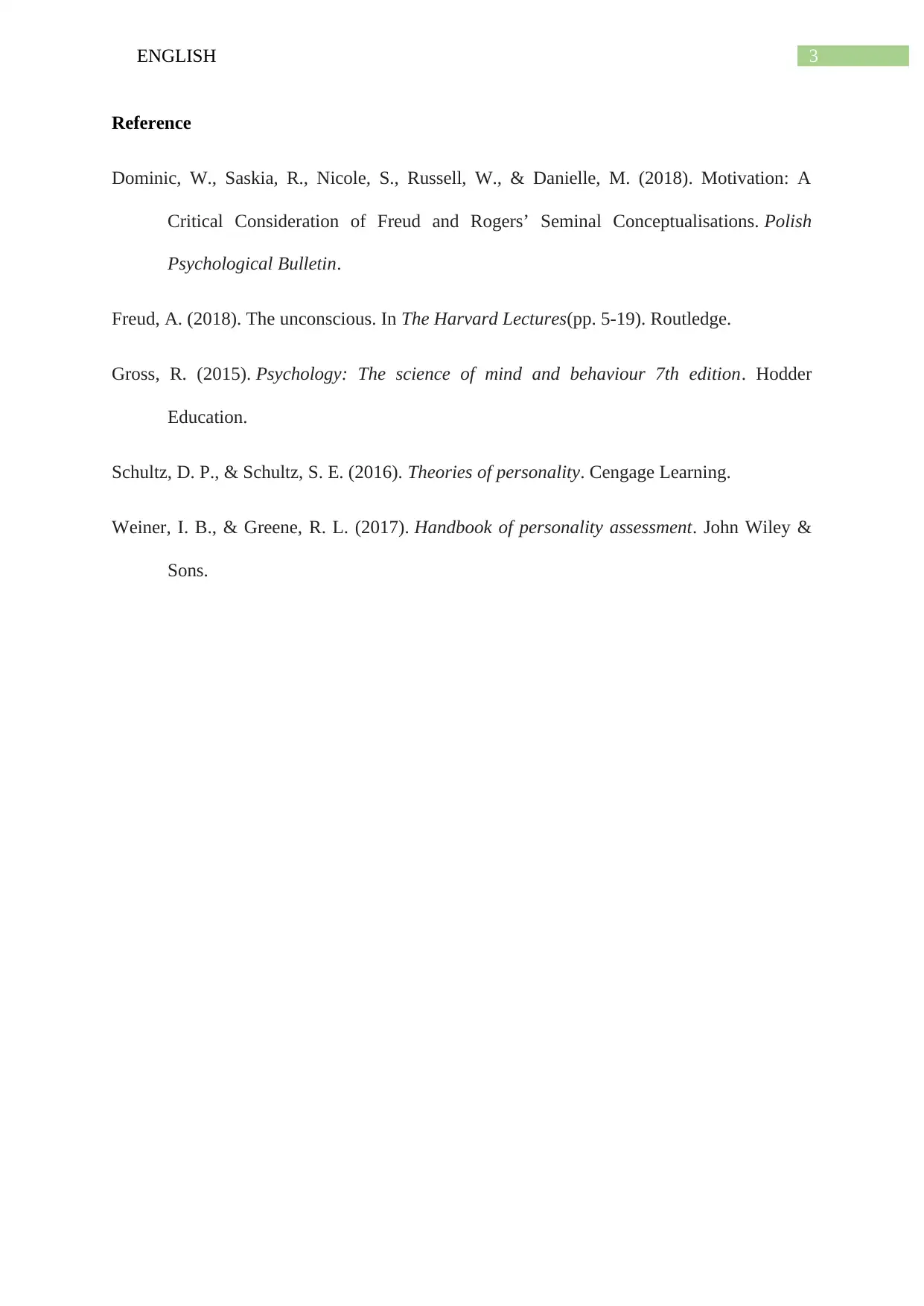Personality Theories: Unconscious Mind, Self-Concept Discussion
VerifiedAdded on 2023/04/23
|4
|746
|328
Discussion Board Post
AI Summary
This discussion post analyzes and evaluates the impact of the unconscious mind and self-concept on current theories and practices centered on personality, as outlined by the assignment brief. The student explores the key concepts of personality theory, specifically contrasting Sigmund Freud's psychoanalytic approach, which emphasizes the unconscious mind's influence on behavior, with Carl Rogers' humanistic perspective, which highlights the role of self-concept and self-actualization. The post references supporting literature from both theorists, and highlights that Freud's theory emphasizes the unconscious mind, which includes factors such as urges, thoughts, feelings, and memories that are outside of awareness, greatly influencing an individual's behavior. The post contrasts Freud's impact with Roger's, suggesting that the latter is less impactful because it is strictly defined towards the opinions, beliefs, and attitudes of an individual towards personal existence, and the theory strictly follows the components of self-actualization and factors related to personal identity which varies as per the congruency of the individual’s actual behavior. The post concludes by comparing and contrasting the two theories based on the evidence and insights from psychological literature.
1 out of 4











![[object Object]](/_next/static/media/star-bottom.7253800d.svg)